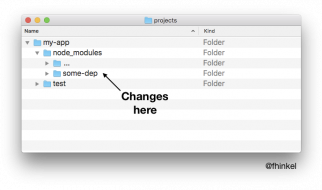 Star Wars: A New Hope, 1977
Star Wars: A New Hope, 1977
In the Star Wars universe, Jedi can use the Force to influence the weak-minded to comply with their will. The Jedi have a lot of cool Force-powers, but this one tops the list as the coolest and most useful. It even has a name: the Jedi Mind Trick.
The most well-known use of this power is in Star Wars: A New Hope when Obi-Wan Kenobi uses the Jedi Mind Trick on some imperial troopers at a checkpoint. If it?s been while, check out the scene here:
While Star Wars has broad pop-culture appeal, the original fan base is made up of science fiction nerds. Nerds do not possess the power of persuasion. They don?t have the charisma or the charm. They tend to be poor communicators in-general. The Jedi Mind Trick is pretty much the ultimate super power for the average nerd. Without it, nerds are unheard and marginalized to the edges of society.
Enterprise Technology groups are made up of Star Wars nerds that all wish they could wield the Jedi Mind Trick, but they can?t. They have smart ideas for advancing the digital capabilities of the enterprise, but they can?t seem to get any traction with the decision-makers. In the economy of ideas, it?s not the best ideas that win, but the best communicated ideas that win.
You don?t need to see his identification
I was in a meeting recently. One of my team members had an objective. An influential decision-maker in the room initially anchored to a position that was opposed to my team member?s objective. Then, I said a few words, and waved my hand a bit. All of a sudden, we were back on track to solution that made everyone happy.
After the meeting my team member was dumbfounded. He looked at me and said, ?How on earth did you do that?!?! Was that the Jedi Mind Trick?!?!?
These aren?t the droids you are looking for
Just like you, I don?t wield the Force. Even if I did, none of my co-workers are ?weak-minded.? I?m on my own, just like you. How I successfully navigate these scenarios starts with what I don?t do. An instinctual human response to conflict is fight or flight. We cannot help it. It?s programmed into the limbic system of our brain. We can, however, overcome it. It?s critical to be self-aware enough to resist the urge to fight back or cower in submission.
Obi-Wan modeled this concept very well, even without the Force. In spite of any threat, he never aggressed, and he never cowered. He always maintained his poise.
He can go about his business
If you can suppress either of these automatic responses, the game is half-won. The next step is intense listening with empathy. See yourself in the other party?s shoes. Expressed needs are subtle, so you need to pay attention. This is the work of the neocortex, but it cannot work if the limbic system is on. That?s why it?s so critical that you suppress the limbic system that only knows how to express aggression and fear.
Once you understand, then unleash your creativity. Think about possibilities and interests, not positions. Find a way that meets everyone?s goals in the meeting. This isn?t about compromise, which leaves everyone a little disappointed. This is a third alternative that equally excites everyone. This can only happen after intense listening and maximum creativity.
Move along, move along
I?ll be the first to admit that I don?t always follow my own advice. I get caught in needless entanglements just like you do. However, I also sometimes get it right, and when I do, it leaves everyone feeling amazing, and some in-awe of my Jedi-like powers.
As you can now see, what I?ve described is a little different than the Jedi Mind Trick. If you do what I teach, no weak or strong-minded person needs to feel exploited in the process. Everyone wins, including you.
Read this article on my blog site: https://zachonleadership.com/the-jedi-mind-trick-how-to-influence-others-without-them-knowing-it/



